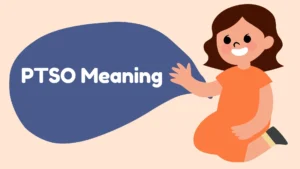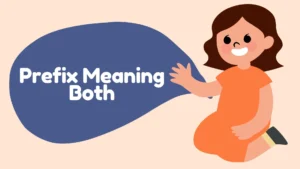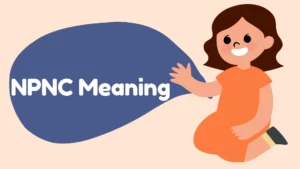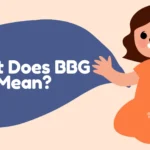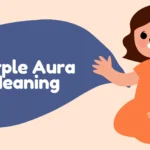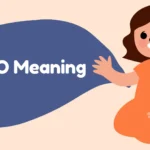In the age of rapid digital communication, abbreviations and slang have become the norm in online conversations. Whether it’s texting, tweeting, or messaging in group chats, people are always looking for faster and more expressive ways to communicate. One such term that has caught the attention of many is “lwk.” If you’ve stumbled across this abbreviation in a text, you might have wondered what it means or how to respond. Though it’s short, this three-letter acronym packs a punch in digital dialogues.
Understanding these types of abbreviations not only helps you keep up with modern lingo but also ensures that your communication stays relevant, especially when engaging with younger audiences or active online communities. In this article, we’ll explore the full meaning of “lwk”, its origins, usage across platforms, common confusions, and appropriate alternatives so you can text with confidence.
What Does “lwk” Mean in Text?
“Lwk” is an abbreviation for “lowkey.” In texting and online messaging, “lowkey” is a slang term used to express a subtle emotion or intention, often something one wants to keep discreet or downplayed. It can be used to convey a slight interest, secret desire, or a toned-down version of a stronger emotion.
Examples of “lwk” in use:
- “I lwk want to skip work today.” Translation: I kind of want to skip work, but I’m not making a big deal about it.
- “Lwk excited for the trip, ngl.” Translation: I’m quietly excited for the trip, not gonna lie.
It’s a way to soften statements, express modest enthusiasm, or admit to something without drawing too much attention.
Other Ways to Say “lwk”
While “lwk” is widely used in informal digital communication, there are many other ways to express similar sentiments. Here are a few common alternatives:
- Lowkey (the full version): Used in the same way, e.g., “I’m lowkey nervous.”
- Kinda: Similar vibe, slightly more common in verbal speech.
- Sorta: Another subtle way to say something without sounding too serious.
- Slightly: More formal but useful in writing or professional settings.
Example comparison:
- “I lwk like him.” Could also be: “I kinda like him.” or “I slightly like him.”
Each alternative carries a slightly different tone, but all aim to underplay the emotion or intent being expressed.
Definitions & Meaning
The word “lowkey”, from which “lwk” is derived, has evolved significantly in digital language. Originally used in contrast to “highkey” (meaning overt or obvious), lowkey means:
- Subtly or quietly
- Not openly expressed
- Without making it public or a big deal
In digital slang, it typically adds nuance, suggesting that the speaker is feeling something but doesn’t want to broadcast it.
Urban Dictionary defines “lowkey” as:
- “To keep something discreet, chill, or not too loud.”
So when someone texts “lwk bored rn,” they’re saying they’re a bit bored, but not dramatically so.
Origins & History
The term “lowkey” has been in the English language for decades, often used to mean something like “restrained” or “moderate.” However, its slang usage began to rise in popularity in the early 2010s, especially among Gen Z and millennials active on platforms like Twitter and Tumblr.
As digital conversations became more fast-paced and informal, abbreviations like “lwk” emerged to match the speed and tone of online discourse. It mirrors the abbreviation trend seen in other terms like “tbh” (to be honest), “idk” (I don’t know), or “ngl” (not gonna lie).
Timeline:
- Pre-2010s: “Lowkey” used occasionally in speech and writing to describe subdued behavior.
- 2010–2015: Surge in slang use on social media.
- 2015–2020s: “Lwk” becomes a shortened form in texting and memes.
Example
Here are a few real-world-style examples showing how “lwk” might be used in text:
- Text conversation between friends:
A: You going to the party? B: Lwk yeah, but only if you are. - Instagram comment:
“Lwk obsessed with this outfit 🔥🔥🔥” - Tweet:
“Lwk feel like quitting my job and becoming a full-time dog walker.”
Each of these examples shows how “lwk” adds a soft, understated tone to the message.
Usage in Different Contexts
1. Social Media
“Lwk” thrives on platforms like Twitter, TikTok, and Instagram where brevity and wit rule. It adds nuance to posts without overwhelming them.
Example: “Lwk think I found my new favorite drink.”
2. Text Messaging
In private conversations, “lwk” helps people express feelings they might be too shy to say outright.
Example: “Lwk miss you.” (More emotionally subtle than saying “I miss you.”)
3. Pop Culture
Used in fan communities to discuss favorites or guilty pleasures.
Example: “Lwk think this season of the show is better than the last one.”
4. Professional Communication
Generally not appropriate in formal emails or corporate chats unless you’re in a creative or youth-centric workplace.
Common Misunderstandings & Clarifications
- Mistaken for “link” or typo: Some may think “lwk” is a typo or shorthand for something else like “link,” especially if they’re not familiar with slang.
- Confused with “lmk” (let me know): Because of similar structure, people sometimes confuse “lwk” with “lmk,” which has an entirely different meaning.
- Thinking it’s sarcastic: “Lwk” is typically sincere but subtle—not sarcastic unless clearly contextual.
- Used interchangeably with “low-key” in all contexts: Not always appropriate in professional or academic settings.
Alternatives & Synonyms
If you want to switch things up or avoid confusion, here are some synonyms and similar expressions:
- Kinda
- Sorta
- A little
- Somewhat
- Secretly
- Quietly
These can be used depending on the tone and formality of your message.
Example: “I kinda wanna go.” = “I lwk wanna go.”
Frequently Asked Questions (FAQ)
1. What does “lwk” mean in a text message? It stands for “lowkey” and is used to express a subtle emotion, desire, or opinion.
2. Is “lwk” slang? Yes, it’s a piece of internet and texting slang derived from “lowkey.”
3. Can “lwk” be used in formal writing? No, it’s best reserved for casual and informal digital communication.
4. Is there a difference between “lwk” and “lowkey”? No real difference in meaning—“lwk” is just a shorthand used in text and online.
5. What’s the opposite of “lwk”? The opposite is “highkey,” which means something is obvious, open, or strongly felt.
6. Is “lwk” appropriate for professional texts or emails? Not generally. It’s best used in informal conversations.
7. How do you pronounce “lwk”? You don’t pronounce the letters; you say “lowkey” if speaking aloud.
Conclusion
The abbreviation “lwk” is a modern-day shorthand that reflects the evolving nature of digital language. It stands for “lowkey,” and while it’s small in size, it holds a lot of meaning. Whether you’re expressing mild excitement, a hidden feeling, or a casual opinion, “lwk” helps soften your message and keep it chill. As with most slang, context is everything—so knowing when and how to use it can enhance your communication, especially in online and social settings.
By understanding the meaning, usage, and alternatives to “lwk,” you can stay in tune with digital conversations and avoid confusion. So next time you see it pop up in a chat, you’ll be ready to respond—lwk like a pro.




